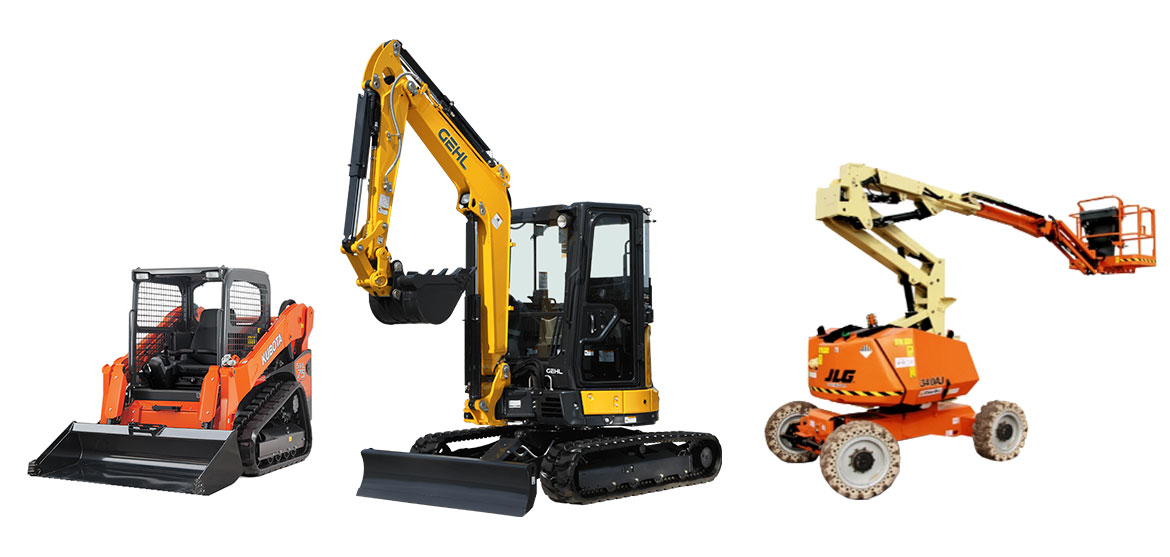Mini Excavator Rental: Compact Machines for Limited Spaces
Mini Excavator Rental: Compact Machines for Limited Spaces
Blog Article
Maximize Your Spending Plan by Recognizing the Prices Connected With Building Devices Rentals
Comprehending the complete scope of expenses associated with building equipment leasings is crucial for maximizing your spending plan. What strategies can be utilized to efficiently take care of these costs and guarantee a more reliable rental experience?
Overview of Rental Prices
When thinking about building equipment services, comprehending the linked costs is critical for effective budgeting and task planning. Rental expenses can differ substantially based on a number of elements, consisting of equipment type, period of leasing, and location. The initial rental cost typically mirrors the tools's market demand and its associated functional capacities, influencing the total expense.
Along with the base rental rate, secondary costs might occur, such as transport fees, fuel surcharges, and maintenance fees. It is important to account for these added costs to accurately assess the complete price of renting devices. In addition, the rental period can affect rates; longer rentals may get affordable rates, while temporary rentals might incur greater day-to-day fees.

Breakdown of Rental Rates
A comprehensive understanding of rental rates is essential for professionals and job managers aiming to optimize their budgets. Rental prices for building and construction equipment typically include several elements, including base rates, time-based fees, and use fees.
Base prices are the core costs connected with the service of the devices, typically identified by the type and size of the machinery. These prices can differ considerably, influenced by variables such as devices demand, accessibility, and regional market fads. Time-based fees, which might be daily, weekly, or monthly, serve to accommodate various task timelines and rental periods.
In addition, rental prices may include use costs, which apply when tools is used beyond a defined threshold, making sure that the rental business can account for damage. Seasonal demand variations can likewise affect rental prices, with peak construction periods normally commanding higher prices.
In addition, comprehending the rental company's policies concerning upkeep and insurance can give further insight right into the overall price structure. By examining these elements, professionals can make enlightened decisions, guaranteeing the option of rental devices aligns with both job needs and budget plan restraints.
Added Fees to Think About
Understanding the complexities of extra costs is vital for specialists to handle their total service expenses effectively. Past the conventional rental prices, different auxiliary charges can significantly impact the total expense of tools rental. These costs typically consist of distribution and pick-up costs, which can differ based upon range and logistics associated with moving the devices to and from the task site.
Furthermore, some rental business may impose fuel additional charges if the tools is returned with much less you could look here fuel than when leased. It is likewise necessary to recognize prospective cleaning fees, specifically for customized tools that needs complete maintenance after use.

Extensively assessing the rental arrangement and clarifying these extra charges upfront can aid specialists guarantee and stay clear of unforeseen costs that spending plans remain intact throughout the project lifecycle.
Upkeep and Repair Work Expenses
Routine repair and maintenance expenses are commonly neglected variables that can considerably affect the general price of building equipment leasings. When renting devices, it is crucial to think about not just the rental fees however also the prospective prices connected with maintaining the equipment in ideal operating condition.
Numerous rental firms include fundamental upkeep as part of the rental arrangement; however, much more unexpected failures or substantial fixings can lead to extra costs. It's necessary to assess the rental agreement Going Here thoroughly to comprehend what maintenance services are covered and what obligations fall on the renter.
Additionally, devices that is not properly maintained can bring about inefficiencies on duty site, possibly causing hold-ups and raising job prices. To mitigate these threats, it is advisable to conduct regular evaluations and preserve open interaction with the rental copyright pertaining to any kind of concerns that emerge throughout use.
Insurance Policy and Obligation Expenses
Insurance coverage and obligation costs are crucial elements that can substantially affect the overall expense of construction tools services (scissor lift rental). These expenses guarantee that both the rental company and the customer are safeguarded from potential economic losses emerging from mishaps, damage, or burglary throughout the rental period

Furthermore, customers need to understand any deductibles or exclusions in the insurance plan, as these can influence potential out-of-pocket expenditures. Understanding the terms and problems of any insurance protection is essential to stay clear of unforeseen prices. Ultimately, budgeting for insurance policy and liability costs can aid make sure a smoother rental experience and protect against economic risks connected with building and construction projects.
Final Thought
To conclude, an extensive understanding of the prices connected with construction equipment leasings is essential for efficient spending plan management. By evaluating rental rates, extra costs, upkeep expenses, and insurance coverage people, requirements and organizations can minimize unexpected expenditures. This tactical method not just boosts cost-effectiveness yet additionally makes certain that tasks proceed efficiently and successfully. Ultimately, informed decision-making regarding equipment rentals adds to the total success of building and construction endeavors.
Rental costs can differ significantly based on several factors, consisting of devices type, period of leasing, and location (equipment rental company). The rental period can impact rates; longer services may certify for reduced prices, while temporary leasings may incur higher day-to-day charges
By carrying out detailed research and involving with respectable rental firms, contractors can properly navigate the intricacies of rental pricing, inevitably maximizing their economic resources.
Past the conventional rental prices, different supplementary fees can substantially impact the overall price of equipment leasing. Rental companies commonly provide responsibility insurance that covers injuries to 3rd events or damage to building, while equipment damages insurance can cover the expense of repairs or replacement if the leased tools is damaged.
Report this page